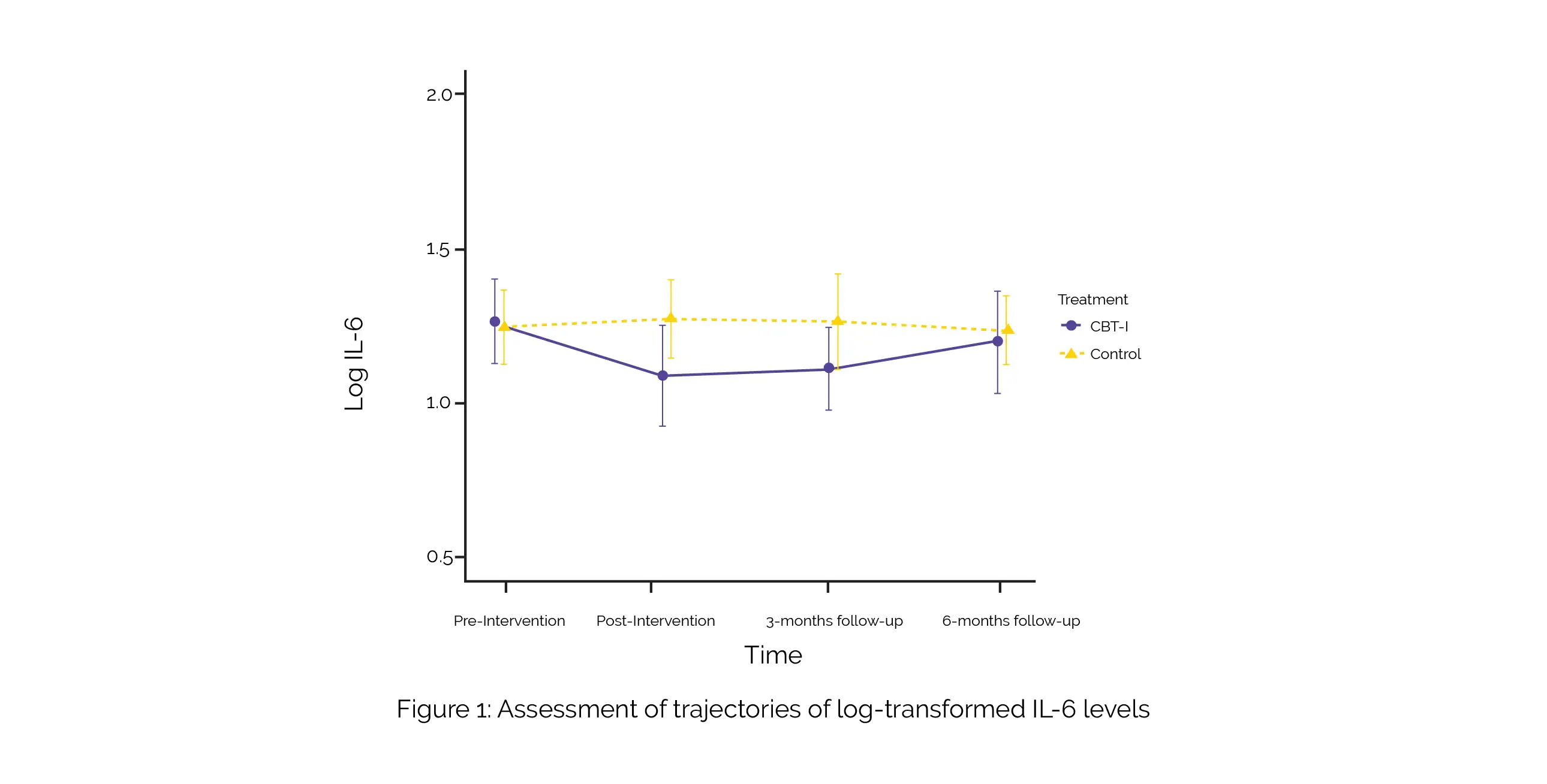Categories
Change Password!
Reset Password!


CBT-I may be effective in alleviating sleep maintenance issues in individuals suffering from both knee osteoarthritis and insomnia disorder. However, CBT-I alone may not be useful to minimize systematic inflammation.
In a recent study, at mid-treatment, cognitive behavioral therapy for insomnia (CBT-I) demonstrated a more significant decrease in wake after sleep onset (WASO) compared to the active control group. However, it was found that the reduction in IL-6 levels at the 3-month follow-up was only significantly associated with WASO improvement during mid-treatment. The objective of the study was to determine whether CBT-I would lead to a greater reduction in circulating IL-6 levels compared to the active control condition.
This effect was hypothesized to be achieved through greater improvement in sleep maintenance disturbance at the midpoint of treatment in people with insomnia and knee osteoarthritis. This study, which involved 64 participants, was conducted as part of a larger double-blind, randomized, active-controlled clinical trial. Serum IL-6 levels were assessed at the beginning, after treatment, and during the 3- and 6-month follow-up periods. Participants' sleep patterns were measured using daily sleep diaries.
As found, there were no noteworthy differences in the trajectory of IL-6 between CBT-I and the active control. However, CBT-I showed a greater betterment in sleep maintenance disturbance during mid-treatment, which was linked to substantially lower levels of IL-6 at the 3-month follow-up. Notably, sleep maintenance disturbance at mid-treatment did not significantly predict alterations in IL-6 levels at post-treatment and the 6-month follow-up (Figure 1).

CBT-I has shown effectiveness in addressing sleep maintenance disturbance in knee osteoarthritis and insomnia patients. However, there was insufficient evidence to support the notion that CBT-I significantly reduces IL-6 levels through sleep improvement. It appears that CBT-I alone may not be effective in minimizing systemic inflammation in this particular clinical population.
These findings contribute to the understanding of the complex relationship between sleep, inflammation, and knee osteoarthritis, highlighting the potential benefits of CBT-I in addressing sleep disturbances but also emphasizing the need for further research to explore alternative strategies for managing systemic inflammation in this patient population.
International Journal of Behavioral Medicine
A Preliminary Examination of the Effects and Mechanisms of Cognitive Behavioral Therapy for Insomnia on Systemic Inflammation Among Patients with Knee Osteoarthritis
Chung Jung Mun et al.
Comments (0)